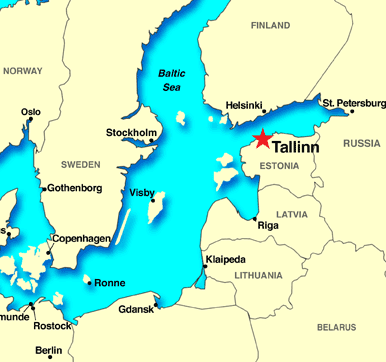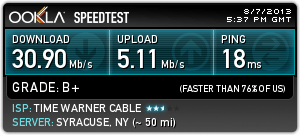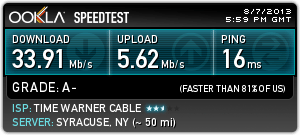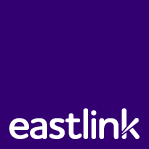
Bruce
Charging usage-based pricing and monetizing your use of the Internet is key to enhanced profits and higher earnings as broadband becomes the key product for cable operators.
That is the view of Robert Bruce, president of the communications division of Rogers Communications, eastern Canada’s largest cable operator.
“[The Internet] is the key to the future of our business, hence monetizing the increased bandwidth usage will rapidly become the future across all our businesses, whether it is wireless or wireline,” Bruce told a financial analyst in response to a question about ongoing Internet rate increases from the cable company. “There are clearly some unlimited offers out there and we think they are fairly shortsighted as the Internet is the future of the business.”
Bruce believes there is plenty of room for future rate increases, especially as the cable company boosts Internet speeds and ends network traffic management, improving the perceived quality of Rogers’ Internet service.
“We have significantly enhanced the value of this product and over time it is our plan to monetize it accordingly,” Bruce explained to the analyst. “The price increase that you receive in the mail would have just been one step in the monetization that we think will continue as Internet service becomes the backbone product in the home.”

Rogers admits it will continue to lower the bar on customers with usage caps and higher broadband pricing.
Ironically, Rogers is currently offering its own unlimited use plans, primarily in response to a competing offer from Bell.
Dr. Michael Geist, a broadband industry observer and law professor at the University of Ottawa notes competition is the only thing keeping Rogers’ pricing and usage caps in check.
“If the Bell offer disappears, so will the Rogers plan,” Geist predicts. “With limited competition, favorable pricing plans will come and go, with executives anxious to increase prices and implement usage caps. The only solution is sufficiently robust competition that all players are continually forced to improve service and keep pricing in check to retain and attract customers.”
Rogers may tell the public Canadian broadband is robustly competitive but the company signals something very different to the investor community. With OECD data already showing Canada among the ten most expensive countries for broadband service in the developed world, Rogers is primed to raise prices even higher as it further tightens Internet usage caps.
Rogers’ improvements in its broadband service do not necessarily correspond with the company’s pricing power. As consumers increasingly consider Internet access an essential utility in the digital economy, Rogers is finding it can set prices as it likes and regularly increase them without effective subscriber backlash. With most Canadians buying service from the cable or phone company, if both providers avoid a pricing war, investors will be able to extract OPEC-like earnings from the barely regulated service.
Providers routinely claim rate increases are tied to costly upgrades, but Rogers’ own financial statements and comments to shareholders say otherwise. The cost to deliver broadband service in Canada is dropping, but the price charged for Internet access and the overlimit fees collected when customers exceed their usage limit will continue to rise as a growing percentage of company revenue now depends on broadband service.

![]() The cable operator tiers its DOCSIS 3 cable broadband speeds like clothing sizes:
The cable operator tiers its DOCSIS 3 cable broadband speeds like clothing sizes:

 Subscribe
Subscribe


 Time Warner Cable broadband customers who briefly unplug their modems to reset them will discover slightly improved download and upload speeds from the cable company.
Time Warner Cable broadband customers who briefly unplug their modems to reset them will discover slightly improved download and upload speeds from the cable company.




 Atlantic Canada enjoys some of the fastest Internet service in the country, often without any usage caps. EastLink offers, in addition to its budget Internet tiers, service at 20, 40 and 80Mbps. Their primary competitor is Bell Aliant, which operates its FibreOp broadband at speeds of 50, 80, and 175Mbps.
Atlantic Canada enjoys some of the fastest Internet service in the country, often without any usage caps. EastLink offers, in addition to its budget Internet tiers, service at 20, 40 and 80Mbps. Their primary competitor is Bell Aliant, which operates its FibreOp broadband at speeds of 50, 80, and 175Mbps.